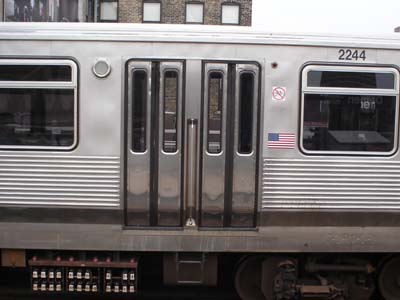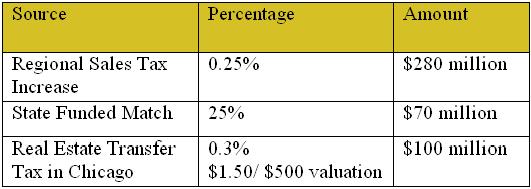Passage of a transit-operating bill was a major victory for Chicago-area transit providers and users, but it did not address the long-term funding needs for system maintenance and enhancements. The region needs more dollars to keep transit running in the future.

On January 17, the Ill. General Assembly passed legislation (HB656) to fund
mass transit operations in northeastern Illinois; the governor signed it into
law the next day. Doomsday service reductions and fare hikes were averted. So
now what? Will train slow zones be eliminated, buses stop breaking down, and
people will have the access they need to get where they’re going? Not
necessarily.
There are two forms of funding
needed to operate a mass transit system effectively: operating dollars that keep
the system moving on a day-to day–basis, and capital dollars that are used for
long-term investments in machinery and infrastructure. The transit system cannot
run without either one, but they are budgeted differently to meet the needs of
the system.
The bill that the
Illinois House and Senate passed in January increased the regional sales tax and
state matching funds to provided more than $400 million in new mass transit
funding for the operating budgets of Pace, Metra, and the Chicago Transit
Authority
(CTA). (The bill also allowed
for additional funding to be allocated from an increase in the Real Estate
Transfer Tax (RETT), upon approval from the City Council, which it did on
Feb.
6th
.) This new money is essential; operating expenditures have
increased 6.5 percent annually over the past five years, while operating
revenues have increased only 2.2 percent per year. The service boards
desperately needed a solution to their operating shortfalls to continue
providing current service.

With the prolonged operating budget deficits, all three
service boards were forced to dip into their capital budgets, which has left the
aging transit system in a state of further deterioration. For example, Metra
said over the last three years, it had to reallocate $165 million from its
capital improvement fund pay for daily expenses. Meanwhile, CTA is running
trains that are 30 to 40 years old. To upgrade transit infrastructure to a state
of good repair and provide for service expansions, CTA, Metra and Pace need an
additional $10 billion in capital funding over the next five years. Illinois
also needs to pass a capital bill to gain federal approval of regional transit
expansions that have been put on hold pending passage of a bill to provide the required
20 percent local match.
Passage of a transit-operating
bill was a major victory for Chicago-area transit providers and users, but it
did not address the long-term funding needs for system maintenance and
enhancements. The region needs more dollars to keep transit running in the
future.